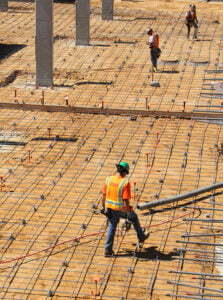
CITY HALL — City Hall won a battle in its war with the state over redevelopment money, recouping almost half of the cash that had already been committed to affordable housing projects throughout the city.
In a letter dated April 3, the state's Department of Finance acknowledged that $19.3 million associated with a loan from Bank of America could not be taken back.
The department also relinquished its claim on $3.5 million related to an affordable housing development at High Place East, saying that it had already been approved, but that approval was not caught in a previous review.
Although progress has been made, the fight doesn't stop there given that $54.5 million was originally contested, said Susan Cola, a deputy city attorney with City Hall.
"What they failed to acknowledge in this letter which they did in previous correspondence is the ($12.5) million we already paid," Cola said, referring to a payment made to the Los Angeles County Auditor-Controller in December.
In a response to the Department of Finance sent Tuesday, city officials also contended that leaves $19 million in dispute that has already been given for affordable housing. Most of that money has already been disbursed to affordable housing developers.
The department has no authority to take back money already promised to third parties prior to the start date of a law, called AB1x 26, which effectively ended redevelopment throughout the state, the letter reads.
Those developments include housing projects undertaken by affordable housing developer Community Corporation of Santa Monica, homeless service provider Step Up on Second and a development for the elderly connected to the First African Methodist Episcopal Church.
The intent of the Department of Finance's letter was to reflect the total amount owed in comparison to the amount city officials have put forward, which was zero, said H.D. Palmer, a spokesperson for the Department of Finance.
Whether or not the money is used for affordable housing "has no bearing as to whether the funding that was transferred was done pursuant to enforceable obligation or not," he said Wednesday.
The dispute is part of a twisted unraveling of redevelopment agencies across the state, which began in 2012 when separate acts of the California Supreme Court, governor and state legislature combined to shutter redevelopment agencies for good.
Redevelopment agencies redirected some property taxes to rehabilitate blighted areas and pay for affordable housing developments. Gov. Jerry Brown's budget dictated that the money held by redevelopment agencies would flow to fill holes in the state budget.
The Department of Finance has been working since to take back funds from redevelopment agencies' "successor agencies," in this case City Hall, not considered "enforceable obligations" under the terms of the law which ended the agencies.
In January, City Hall, Santa Monica's "Successor Agency," and CCSM sued the state to try to win back $54.5 million in dispute, contesting that the money had been promised to other entities before the laws ending redevelopment agencies went into effect.
If the money had gone to the Department of Finance, it could have dire implications for organizations like CCSM, which used the money to leverage other loans from private entities, Sarah Letts, the executive director of the organization, wrote in a declaration to the court.
CCSM could face bankruptcy if that happened, she wrote.
Things look less dire today, Letts said Wednesday.
City Hall has stepped in and put all of the money it promised into two of the affordable housing projects at 430 and 2802 Pico Blvd. despite the uncertainty with the redevelopment funds, Letts said.
"I think they're the kind of partner that is genuine in their support for affordable housing," she said.
That is typical of the way City Hall treats affordable housing projects, and doesn't bode well for trying to take the cash back as the state demands, said Andy Agle, director of the Department of Housing and Economic Development.
"It's practically impossible because the money has already been paid to contractors who have done the work," he said.
At this point, next steps in the situation are unclear. There's a court hearing in July, and negotiations continue.
"We are open to whatever reasonable position the state wants to take," Cola said.
ashley@www.smdp.com









